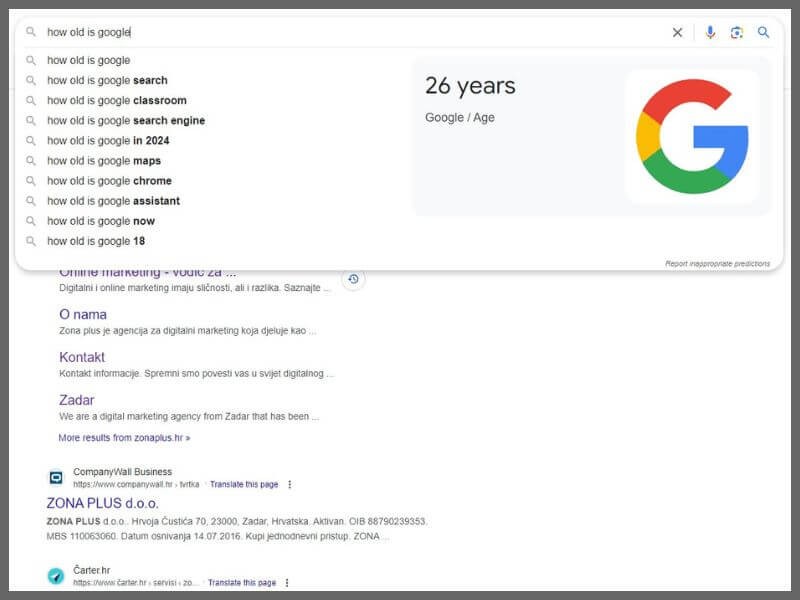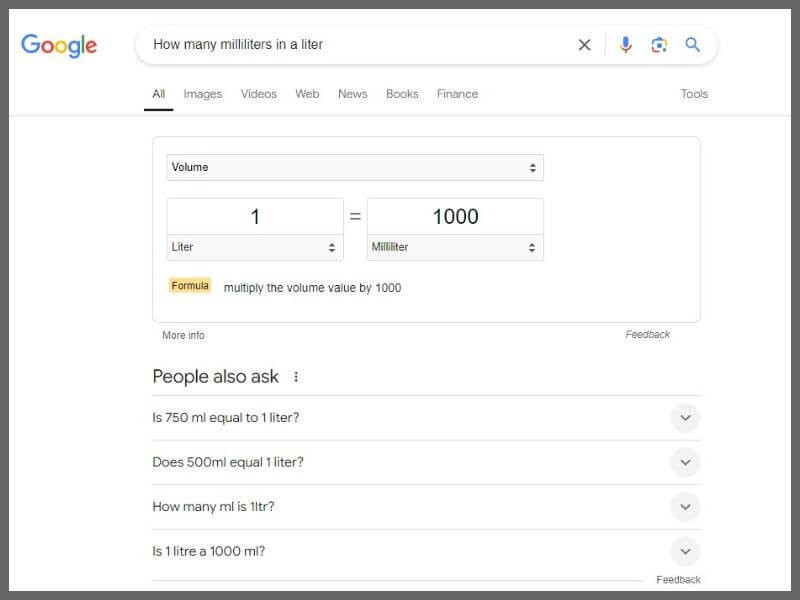
To answer the question of what zero-click searches are, there is a simple answer: when a user’s query is answered directly on the search engine results page (SERP) without the need to click on a website or search through a website. Even when users don’t click on a website, zero-click searches can still drive engagement. For example, a user might read your featured snippet and later return to your site directly for more in-depth information or services. Still think you don’t need zero-click searches?
Why should you care about zero-click searches? These searches have fundamentally changed how websites capture audience attention. If your content isn’t optimised for zero-click queries, it may be losing visibility even if it ranks well.
The question isn’t whether zero-click searches affect your SEO; it’s how much.
You can achieve visibility and brand recognition even when the click doesn’t happen.
Zero-click searches are search results that satisfy the user’s intent without them needing to leave the results page. This includes things like the weather, definitions, or even how-to steps—directly visible on Google’s SERP (Search Engine Results Page).
For users, these searches save users time, especially for simple, factual questions. Google extracts this data from indexed websites, often displaying it in the form of featured snippets or knowledge panels.
These no-click results Google offers are faster, more efficient answers, but they also reduce organic click-through rates for websites.

Search behaviour has evolved drastically. Especially if we know that a human’s attention span is 8.25 seconds. After that – who knows.
As mobile search and voice assistants become more prevalent, users demand faster, more convenient results. This is where zero-click searches come in.
The rise of these searches is directly tied to Google's advancements in AI and natural language processing.
Users aren’t just looking for links on websites, their content and blogs; they want immediate answers.
For instance, typing "How old is Google?" delivers the answer directly at the top of the page.
So yes, adapting to zero-click searches can be both a challenge and an opportunity. You can, at any point, offer content that’s designed to meet these quick-answer needs rather than just relying on traditional SEO practices focused on rankings alone.

Zero-click searches are rewriting the rules of SEO as they focus on answering user questions directly on Google’s page rather than driving traffic to external websites.
If you want to try to acquire visibility within these zero-click results, it means having content that is easy for Google to feature, such as compact answers to commonly asked questions.
Long-form content is still essential, but now, it must be accompanied by shorter, more digestible information that fits the quick-answer format people want.
Schema markup, proper use of headings, which ensures your content answers user intent succinctly, is now essential component of any effective SEO strategy.
The main “tools” Google uses to deliver zero-click search results are featured snippets, knowledge panels, and quick answers.
Zero-click searches essentially “steal” potential traffic by giving the answer directly in the SERP, thus minimizing the need for users to click through to websites.
While this benefits user convenience, it reduces organic traffic for websites that rely on search rankings to drive visits.
For you, this means you can shift from click-through rates to visibility and brand recognition within search results.
If you’re “losing clicks” to these no-click results, it’s time for you to see how you can still benefit - by improving content for these features, of course.
The traditional SEO goal of increasing click-through rates (CTR) has shifted.
Now, brand visibility is just as, if not more, important than getting users to visit your website.
Your brand needs to be front and centre in SERP features like snippets, panels, and answer boxes.
So, instead of attracting clicks, your goal should become increasing exposure in these non-clickable spaces.
Users may not visit your site per se, but... Repeated exposure in search results builds brand familiarity and, as a result, builds trust.

As zero-click searches continue to rise, SEO strategies will focus more intensely on adapting content for these new search behaviours.
And yes, your website must be optimised for mobile devices; there is no excuse.
In addition to perfecting for text-based zero-click results, use video, FAQ sections, and conversational content.
Video content will better your chances of appearing in search results, particularly for how-to or tutorial-based queries.
FAQ (Frequently Asked Questions) sections are another great way as they mirror the conversational nature of many zero-click and voice searches. By directly answering the usual questions people ask, you boost your featured snippets or Google’s quick answers appearance.

Zero-click searches are slowly but assuredly starting to redefine SEO as we know it.
It’s time for you to start thinking in that direction, also.
In addition to driving traffic to your website, try yourself to increase visibility.
Your new goal is to ensure your brand appears where users are looking for information, whether they click or not.
But, this will require a new mindset on your part, another point of view on exposure and authority over mere website visits.
If you want to build a lasting presence in search results and make sure your brand remains at the top - give us a call.